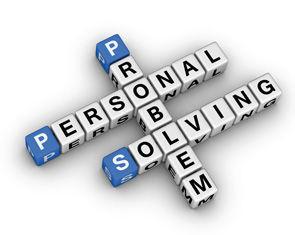
Image Credit: ALMAGAMI/shutterstock.com
As a physician, it’s important to be in the present 100% of the time. “Writing the wrong number on a prescription pad is an extreme, but important, example of what could happen if a physician is distracted,” says consultant Donna Singer, Donna Singer Consulting LLC, Newton, Mass.

Dr. Chabra
Sanjay Chabra, DO, director of rheumatology, St. Jude Heritage Medical Group, St. Joseph Health, Fullerton, Calif., says, “We must give patients our full attention so we don’t miss out on any important details that could be needed to make a diagnosis or a change in treatment. Patients will notice quite quickly if we aren’t listening to them, which will break the patient–doctor relationship.”
Diagnose the Problem
“If a personal problem is on your mind, you need to determine if you can indeed be present for the patient,” Singer says. Depending on the physician, some methods work better than others.
Physicians should not feel embarrassed or ashamed when grappling with a personal problem, given that everyone has them, says Randy A. Sansone, MD, professor of psychiatry and internal medicine, Wright State University School of Medicine, and director of psychiatry education, Kettering Medical Center, Dayton, Ohio. “Physicians may feel a loss of control in stressful personal situations. They are not functioning as the dispenser of healing, but receiving the healing, which can culminate in uncomfortable feelings of vulnerability due to being dependent upon others,” he says.
If possible, the best way to release a problem is to take actions to resolve it. “This means diagnosing the problem and creating a treatment plan, just as you might for a patient,” advises relationship expert and author April Masini, Naples, Fla.
If it’s a fight with a spouse or significant other, make time to meet and talk with them. Simply scheduling a date—whether it’s a 30-minute phone call at lunch or a dinner date at home, will alleviate some of the anxiety about the problem hanging out there. If the personal problem involves money, for example, scheduling a meeting with an accountant may help.
Jeanette Raymond, PhD, clinical psychologist and psychotherapist, Los Angeles, offers a different approach. She advises writing down the personal problem. “The problem is made real by writing it down; it is taken seriously, dissipating anxiety,” she says. “The unconscious brain will now be working out solutions without the physician’s conscious self being invaded.”



